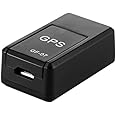The humble GPS navigator. A small, often overlooked device that has revolutionized travel. But its portrayal in movies and TV is far from mundane. From trusty companions guiding heroes to their destinations to sinister tools orchestrating elaborate plots, the GPS navigator’s on-screen presence is surprisingly diverse and often reflects the anxieties and aspirations of the era.
The Early Days: The Infallible Guide

In the early days of GPS navigation’s cinematic appearance, the device was often portrayed as a near-infallible guide. Think back to action movies of the late 90s and early 2000s. The GPS voice, typically calm and reassuring, would confidently direct the protagonist through treacherous terrain or bustling cityscapes, seemingly always finding the perfect route. There was a sense of trust and dependability, a technological marvel seamlessly integrating into the narrative, usually without much fanfare.
This portrayal reflected the initial public perception of GPS technology—a revolutionary tool promising ease and efficiency. The emphasis was on the positive aspects: no more getting lost, precise directions, and the convenience of avoiding traffic. These early cinematic appearances set the stage for the more complex and nuanced portrayals that followed.
The Rise of the Unreliable Navigator: Comedy and Chaos

As GPS navigation became more commonplace, so did the comedic potential of its occasional flaws. Movies and TV shows began to exploit the humorous side of technology gone wrong. The mispronunciation of street names, the unexpected detours, and the occasional catastrophic navigational error became fertile ground for comedic situations. Think of those scenes where a character is sent on a wild goose chase, hilariously lost because the GPS led them down a dirt road or into a dead end. These humorous depictions tap into the shared experience of relying on technology that can sometimes, frustratingly, fail.
This shift reflects the changing relationship between humans and technology. The initial awe and trust gave way to a more realistic understanding—technology is a tool, not a perfect solution, and it can occasionally let you down.
The GPS as a MacGuffin: Plot Device Extraordinaire
Beyond its comedic potential, the GPS navigator has also found a prominent role as a vital plot device, often serving as the “macguffin”—an object that drives the plot forward but doesn’t necessarily need to be fully explained. This usage is particularly prevalent in thrillers and spy films. The GPS might contain crucial information, lead to a hidden location, or even be used to track the protagonist’s movements.
In these scenarios, the GPS transcends its practical function and becomes symbolic, representing surveillance, control, and the ever-present threat of being tracked in a technologically advanced world. Its unassuming nature makes it a perfect tool for covert operations and high-stakes chases, adding a layer of suspense and tension to the narrative.
The GPS in the Age of Self-Driving Cars: A Changing Landscape

With the rise of autonomous vehicles and advanced driver-assistance systems, the role of the GPS navigator in film and television is likely to evolve further. The traditional, voice-guided navigation might become less central, potentially integrated seamlessly into the car’s AI system. The focus may shift to the ethical and societal implications of relying heavily on AI for navigation and the potential for malfunction or malicious manipulation.
Future portrayals might explore the conflict between human control and automated systems, the dependence on technology, and the potential for unforeseen consequences when these systems fail. This reflects a growing societal debate about the role of AI in our lives and the ethical implications of increasingly autonomous technology.
Conclusion: A Reflection of Our Relationship with Technology

The portrayal of GPS navigators in movies and TV is a fascinating microcosm of our ever-evolving relationship with technology. From the initial reverence to the comedic frustrations and the eventual integration into complex narratives, the on-screen GPS reflects our anxieties, aspirations, and ever-changing perception of this seemingly simple device. As technology continues to advance, the ways in which GPS navigation is depicted in film and television will undoubtedly continue to evolve, providing a compelling lens through which to examine our dependence on, and interaction with, the digital world.


